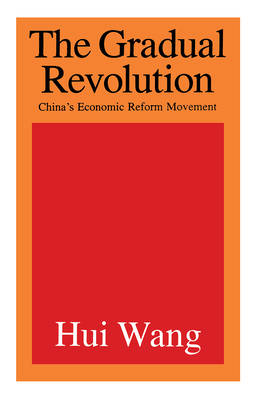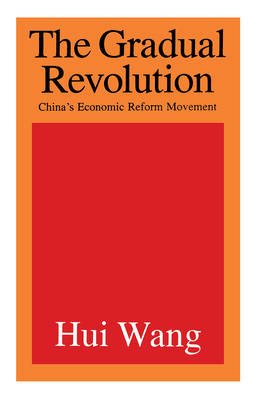
- Afhalen na 1 uur in een winkel met voorraad
- Gratis thuislevering in België vanaf € 30
- Ruim aanbod met 7 miljoen producten
- Afhalen na 1 uur in een winkel met voorraad
- Gratis thuislevering in België vanaf € 30
- Ruim aanbod met 7 miljoen producten
Zoeken
The Gradual Revolution
China's Economic Reform Movement
€ 135,45
+ 270 punten
Omschrijving
The Uprising at Tiananmen Square may have been crushed politically, but it has had extraordinary consequences in opening up China to new varieties of economic experimentation. Nowhere has this fusion of political repression and economic opportunity been better captured than in Hui Wang's masterful study. And given the world wide and historic importance of China, this volume deserves most careful consideration.Given his unique background as a former assistant director of the China National Economic Reform Institute (CNERI) hi Beijing, and before that, a board member of The Economic Daily in the capital city of China, he is able to provide the sort of first hand account that deeply enriches this fundamental treatise on the transformation of the Chinese economy from a centrally planned to a market system.This book should prove to be especially timely as American investors and businessmen are pouring into China for new commercial ventures; while scholars are likewise coming to China in order to obtain information and experience to benefit other struggling formerly socialist economies. Wang makes no claim that present-day China is necessarily a model for the rest of Asia or Eastern Europe, but he does make plain that variations on the theme of a free market and a controlled polity are as much part of "Leftist" as well as "Rightist" regimes. As a result, this book should have appeal quite beyond undergraduate and graduate courses in modern China, and should extend to those political scientists and sociologists who take seriously fundamental themes of development.
Specificaties
Betrokkenen
- Uitgeverij:
Inhoud
- Aantal bladzijden:
- 236
- Taal:
- Engels
- Reeks:
Eigenschappen
- Productcode (EAN):
- 9781560001690
- Verschijningsdatum:
- 31/07/1994
- Uitvoering:
- Hardcover
- Formaat:
- Genaaid
- Afmetingen:
- 163 mm x 239 mm
- Gewicht:
- 566 g

Alleen bij Standaard Boekhandel
+ 270 punten op je klantenkaart van Standaard Boekhandel
Beoordelingen
We publiceren alleen reviews die voldoen aan de voorwaarden voor reviews. Bekijk onze voorwaarden voor reviews.










